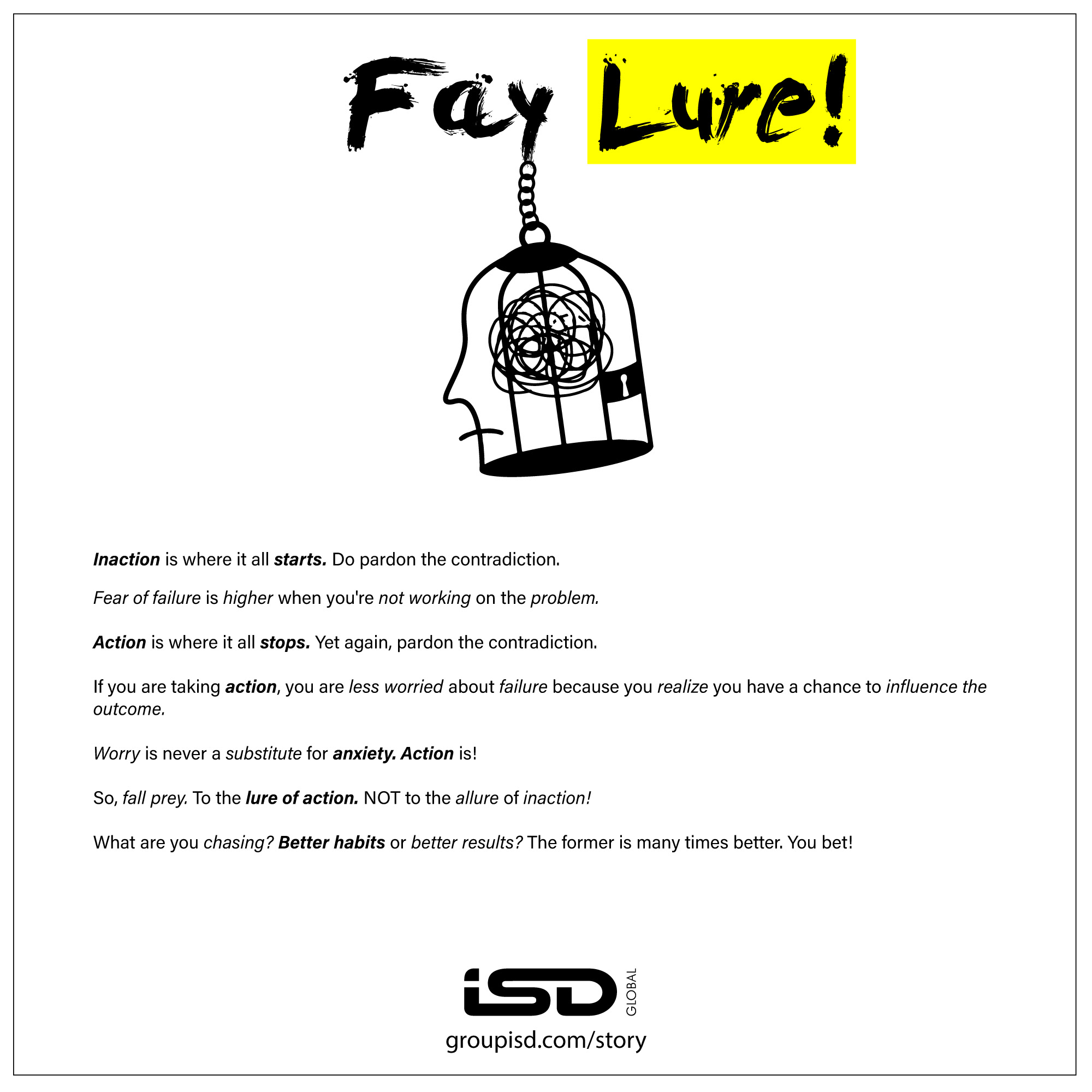Doorstep at-your-feet delivery, touch screen inspired command and control at our fingertips, the increasing absence of humans in any interaction with an organisation( and therefore the superfluousness of our emotions) and many such in our zeitgeist has made us the sacrificial lamb at the altar of ease and convenience.
In the school industrial complex, we were taught compliance from an early age. Non compliance equalled failure, mind you, we were made to believe that. In order to amplify compliance, people in authority have instilled in us not just a fear of failure, but worse, a fear of fear.
The diktat going around is that of ease and convenience. And the freedom from the fear of failure. A fear of weakness only strengthens weakness. You are only adding fuel to the fire. Fear of failure is a mental virus that stops us from taking risks and trying things in life. It tells you a scary story. It says you are not good enough, and things will turn out terribly bad.

Eloise Ristad put it beautifully ” When we give ourselves permission to fail, at the same time, we give ourselves permission to excel “.
The reason it’s hard to push ourselves, even when there’s no external downside of doing so, is our fear of fear of failure. That feeling, the feeling of insufficiency and doom, pushes us to seek the comfort of compliance instead.
Easily do-able is the default whereas great work be it for enterprise, art, music, literature, new inventions etc stem from us allocating our time to things that may not work.
Failure. The perspective would be to see it as a lure( to create or make things better) rather than see that as a speed breaker.
An interesting throwback on failure can be witnessed in this article from BrandKnew about ” What Designers Can Learn From The Museum Of Failure (Yes, It Exists) “.
It’s good to remember that ” fear is a reaction, creativity is a response ‘.
ENDS
